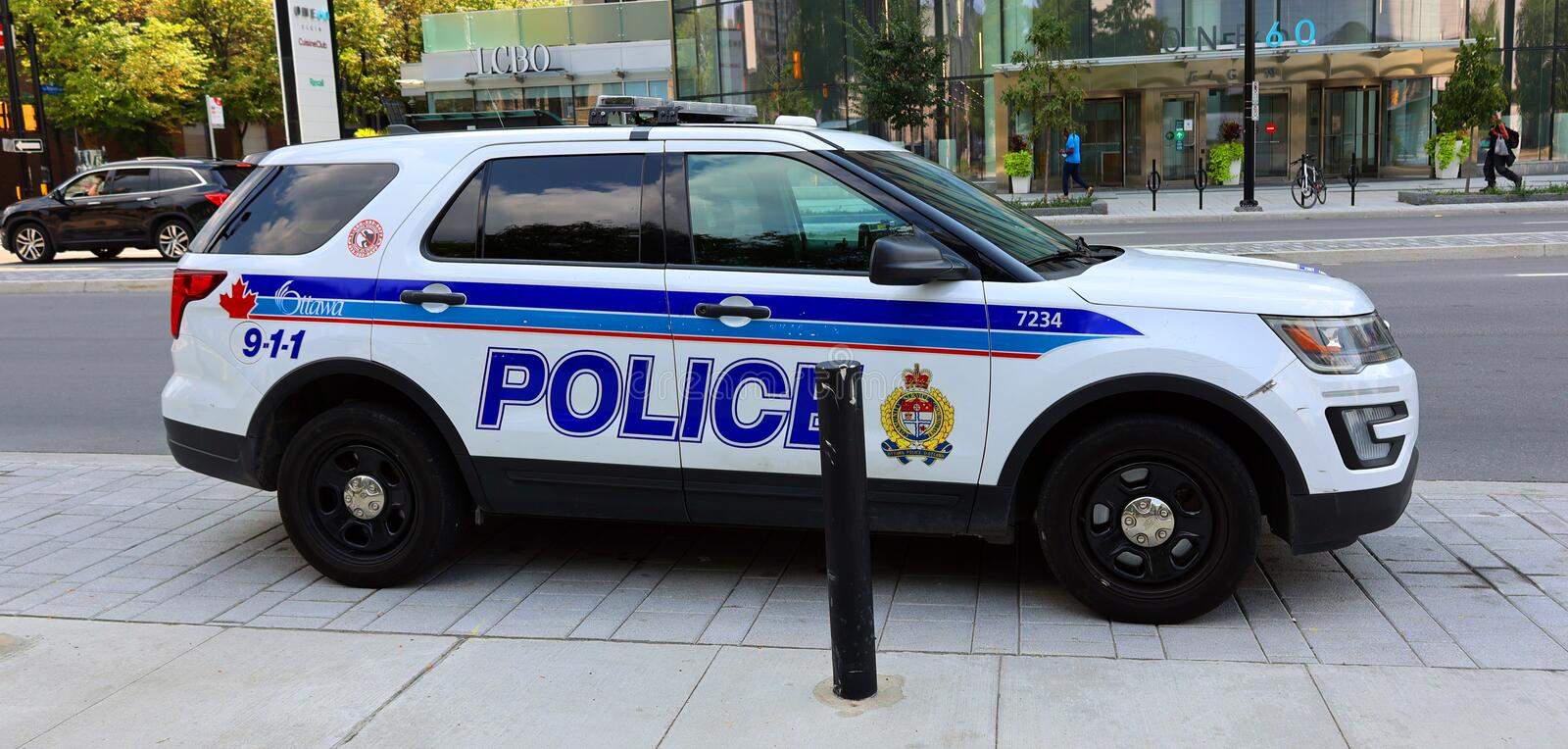Abid Jan – Feb 02, 2023.
This is not surprising that ten Ottawa community groups released a statement Wednesday calling for a freeze to the police budget and investment in other services.
This is again that time of the year for heated budget discussions, including Ottawa Police budget. There are many divergent views. However, for those who want to know the ABC of why we need the police and what are the implications for cutting police budget, here are a few facts to keep in mind.
Public safety is police’s main responsibility. Police play a crucial role in maintaining public safety and preventing crime. Cutting the police budget results in a reduction of law enforcement personnel and resources, which could lead to an increase in crime and disorder as we have seen in many instances in police since some jurisdictions started cutting police budgets.
Despite other social service agencies active in many capacities, it is the police responsible for the primary response for emergency situations, such as natural disasters, active shooter incidents, and medical emergencies. Even for mental health related emergencies, there is no solid system in place to call services other than the police. Cutting OPS budget would hinder their ability to respond to these types of events quickly and effectively.
OPS is responsible for enforcing laws and maintaining order, which is essential for the functioning of society. Cutting OPS budget, while the city is expanding and the cost of living is increasing, would limit their ability to perform these duties, potentially leading to a breakdown in law and order. It just doesn’t make sense that all other areas in the City’s budget would go up with time but when it comes to OPS, the demand is reduction of funds – rather than a proper analysis of what to cut (responsibilities as well as resources), where to move, why and how?
Police also plays an important role in protecting vulnerable populations, such as victims of hate crimes, domestic violence and human trafficking. Budget cuts would reduce the resources available for these types of investigations and potentially put these populations at greater risk.
Freezing or cutting the OPS budget for the sake of cutting it – without a clear plan for alternative forms of public safety and crime prevention – could result in a vacuum of responsibility and leave communities without adequate protection.
Some potential implications of freezing or cutting OPS budget to consider include:
- A reduction in police resources and personnel could result in an increase in crime and disorder, particularly in high-crime areas.
- Defunding the police could lead to a decrease in public safety as law enforcement may be less equipped to respond to emergencies and prevent crime.
- If communities are left without adequate protection and support, it could result in a loss of trust in government and other public institutions. This could lead to increased crime as some might take up justice in their hands.
- Freezing or cutting the police budget would lead to mismanagement in reallocating funds from the police department to other areas, such as social services and community-based policing programs. However, without a throughout plan and alternative, throwing dollars at the problem would never lead to tangible, positive outcome. Did we analysis the failure of upstream prevention? Where are social services failing that lead to emergencies that the police has to deal with? Where are inefficiencies in the social service work? How gaps in service could be filled in a collaborative way among various service providers? Could there be alternative join-programs with the police for upstream prevention and emergency response situations?
- We need for upstream preventative work to address the root causes that lead to crime and violence. In the absence of that, if we call for cuts to the police budget that would at least require alternative forms of public safety. We need to address the issue of inequity that leads to disparity among neighbourhoods, creates conditions for many quality of life issues which turns some communities into fertile grounds for crimes, drugs and violence. Did we consult experts, researchers and the community on this critical issue? Has the funding from other sources for such preventative programming increased or decreased in the past few years? What are the implications of funding cuts on the vulnerable communities? Is freezing the police budget an answer to addressing the inefficiencies in the social services sector? Cutting the police budget would require the development and implementation of alternative forms of public safety and crime prevention. Do we have any alternative? Could there be an alternative? How long would it need to be in place?
The question to ponder is: Do we have to consider all these questions, or is it important to just begin with freezing and cutting the OPS budget?


Abid, your post suggests that those calling to defund the police haven’t, at the very same time, been calling for the funding to be invested in alternatives that increase public safety. We have been. You say police play a crucial role in maintaining public safety and preventing crime but provide no evidence to back this up. Police respond to crime. They don’t prevent it – unless you’re suggesting they do so by deterring crime which, if you are, again – where’s your proof? The OPS’ 2021 Annual Report has one page on crime prevention – focussed almost entirely on helping landlords prevent crime at their properties.
You say cutting the police budget reduces the number of cops “which could lead to an increase in crime and disorder as we have seen in many instances in police since some jurisdictions started cutting police budgets.” But, again, you don’t provide any evidence of a connection between an increase in crime and defunding. You also don’t mention that most of the US cities that cut police budgets in 2020 restored or increased them in 2021. Instead, you provide a link to a story about Minneapolis City Council defeating a November 2021 motion that proposed replacing the Minneapolis Police Department with a Department of Public Safety (DPS) and eliminating minimum police funding requirements. It’s not surprising these failed since 2021 saw US cities re-funding police.
You say police are the primary responders in emergency situations such as natural disasters, active shooter incidents, and medical emergencies, adding that, for mental health emergencies, there is no solid system in place to call other than the police. You say cutting the OPS budget would hinder their ability to respond to these types of events quickly and effectively. We do need an effective emergency response service but are armed officers authorized to kill people the best ones to be doing it?
You say police play an important role in protecting vulnerable populations, such as victims of hate crimes and domestic violence and that police budget cuts would reduce resources and potentially put these populations at greater risk. This suggests the police are doing a good job addressing hate crimes and domestic violence, but the evidence shows otherwise. The OPS 2021 hate crime clearance rate was just 21%. Regarding domestic violence, according to Ottawa police data, only 14% of domestic violence reports to police resulted in charges being laid in 2020…meaning police didn’t lay charges 86% of the time. In February 2017, the Globe and Mail published the results of its “Unfounded” series that found that for every 5 women who report sexual assault to police, the police assume one is lying. As a result, only 5% of survivors of sexual violence ever report their assault to police. That’s why one of the goals of Ottawa’s Community Safety and Wellbeing Plan is to have an alternate reporting system for survivors, which, as the OPS’ new Community Safety and Wellbeing Director, you should know.
Tellingly, you don’t mention the OPS’ role in addressing violent crime. Could this be because the OPS’ own data shows they spend less than 1% of their time responding to Priority 1 calls where there’s imminent threat of bodily harm? Meaning, armed OPS officers spend 99% of their time doing things like directing traffic, babysitting construction sites and responding to mental health calls. They also spend much of their time over-policing marginalized people including moving unhoused people away from businesses and using force disproportionately on Black, Middle Eastern and Indigenous people (again, according to their own data).
You worry that “if communities are left without adequate protection and support, it could result in a loss of trust in government and other public institutions.” And that, “..this could lead to increased crime as some might take up justice in their hands.” What actually continues to erode trust in government and public institutions is the Ottawa police continuing to harm and kill marginalized people – and the Ottawa Police Services Board rewarding their behaviour with large annual increases. The April 2022 report, Troubling Encounters: Ottawa Residents’ Experience of Policing, confirmed that racialized and low income Ottawa residents have extremely low levels of trust in the Ottawa police. In fact, the report states, “In short, for many people in this city, police do not contribute to individual or community safety, in fact, they appear to do the very opposite.”
We do agree that eliminating the Ottawa police without a clear plan for alternative forms of public safety and crime prevention could result in a vacuum of responsibility and leave communities without adequate protection. That’s why we’re calling for a reimagining of public safety that includes fully funded alternatives that will keep us all safer.